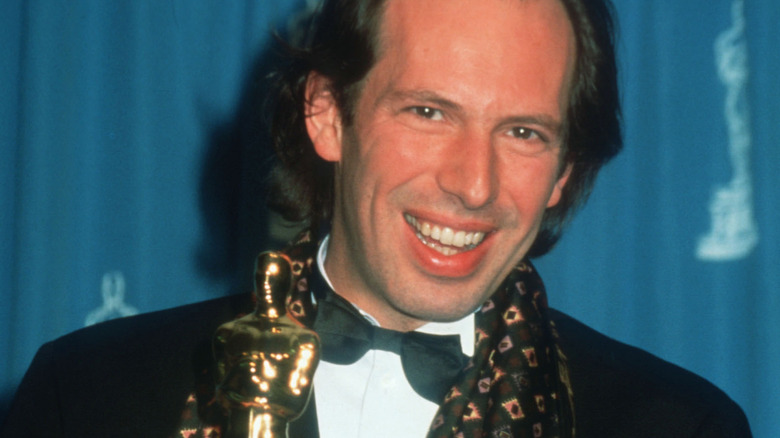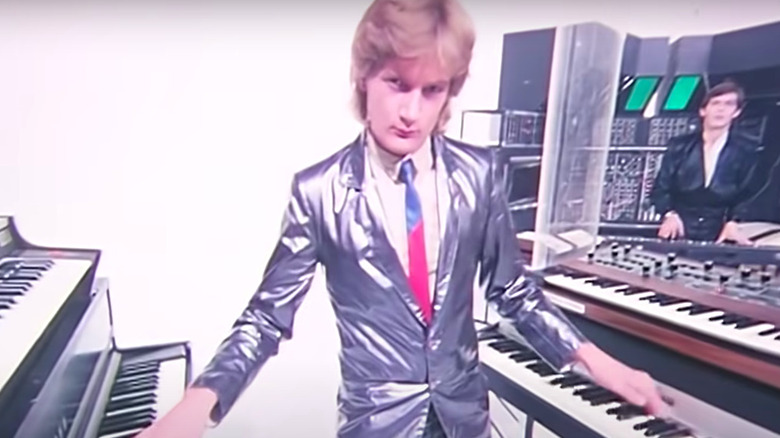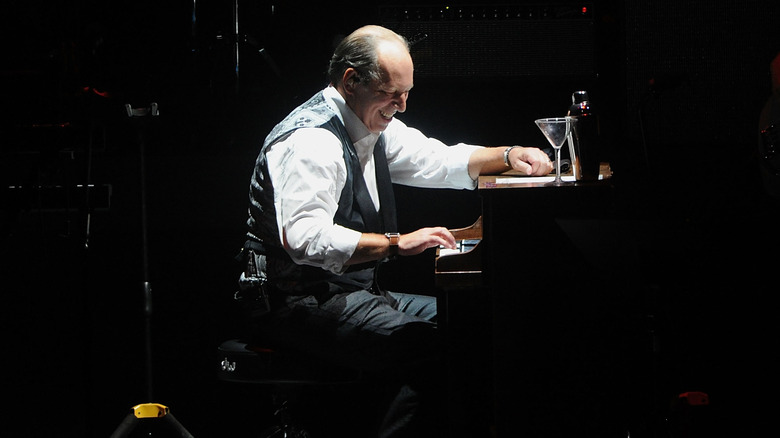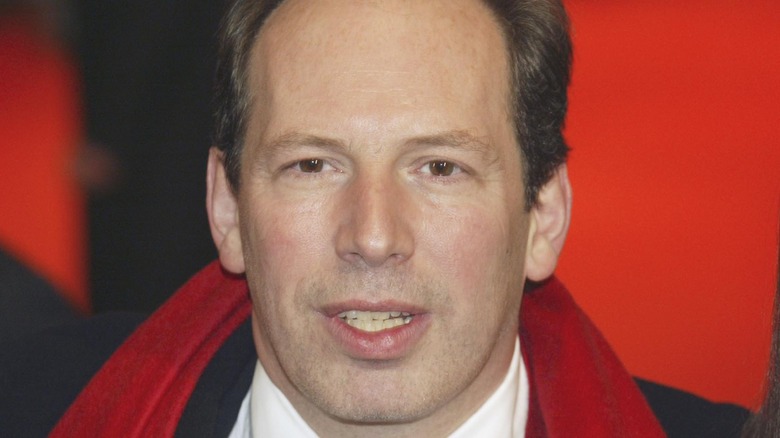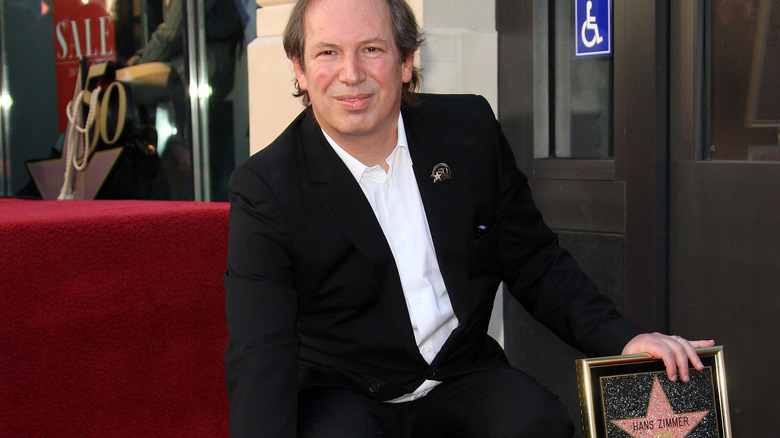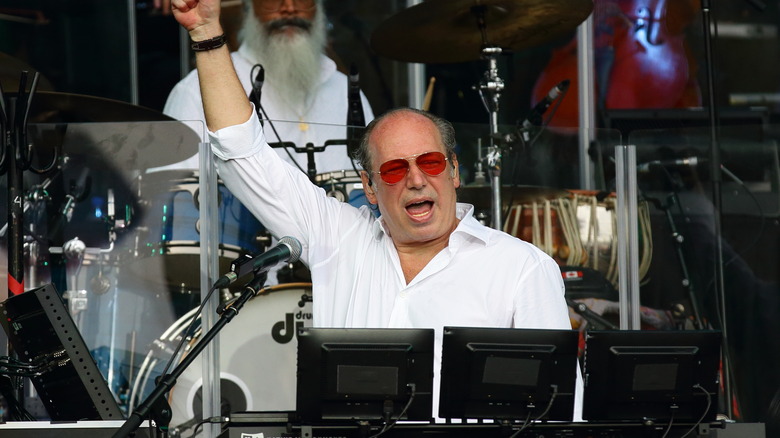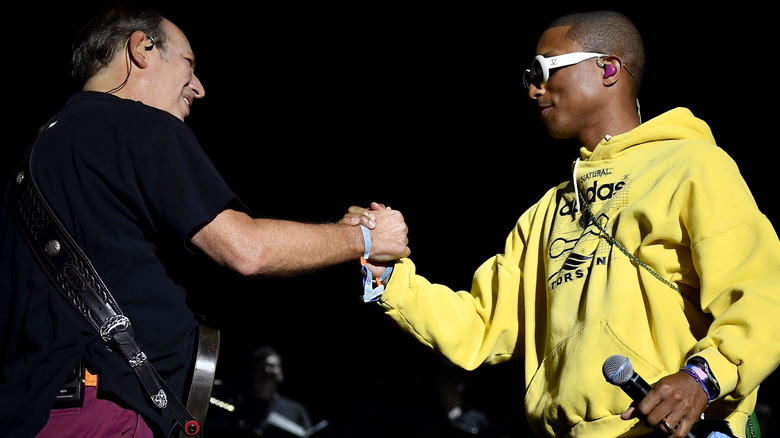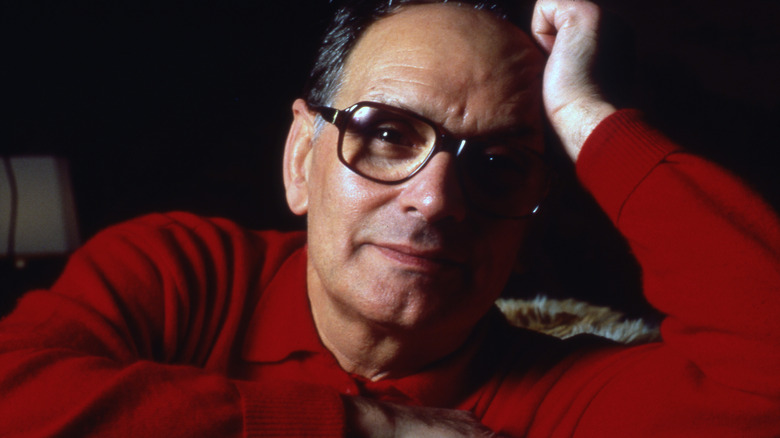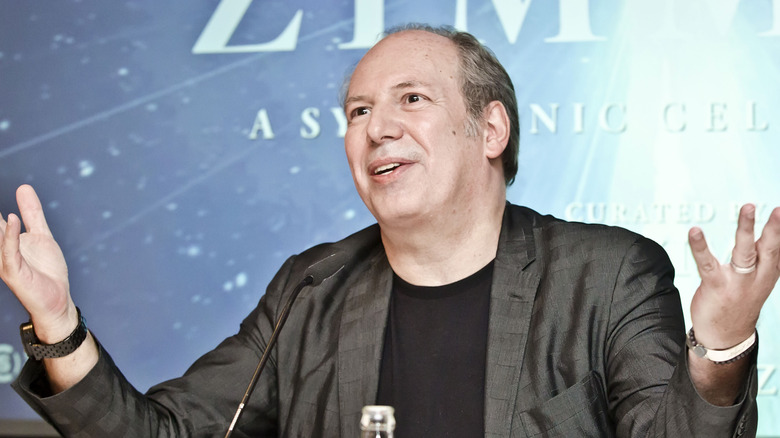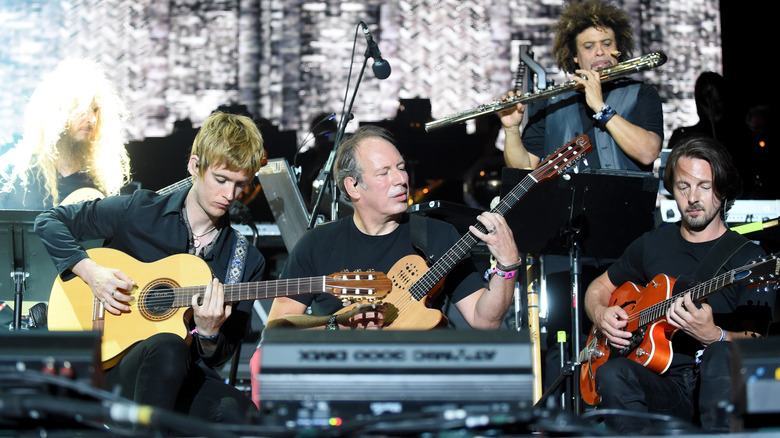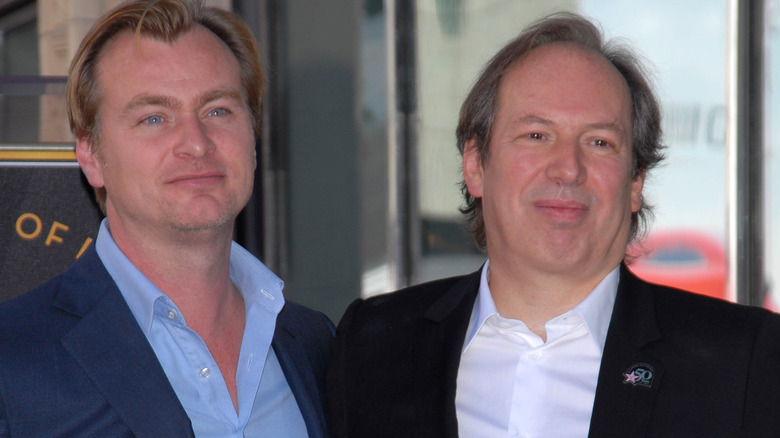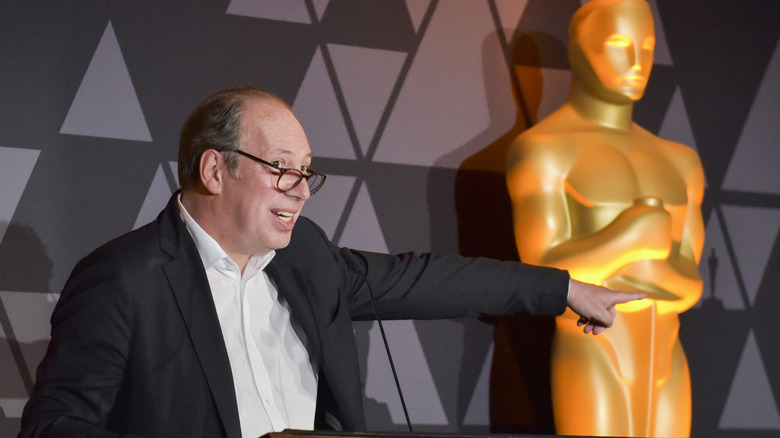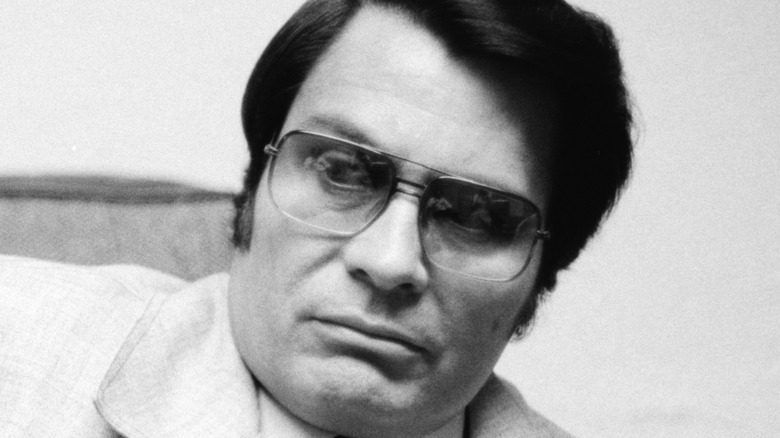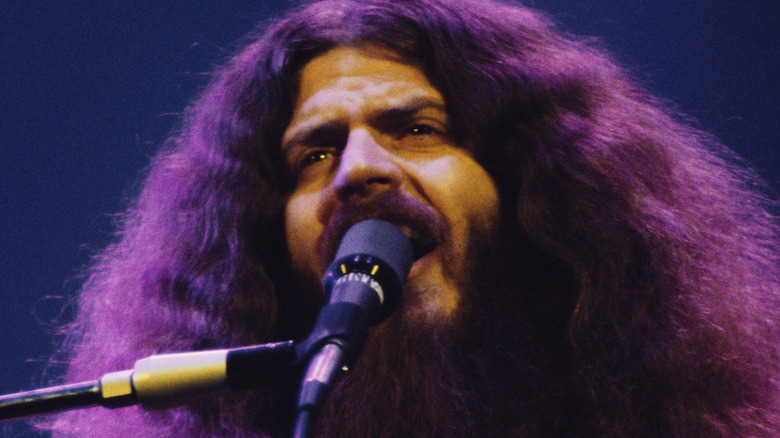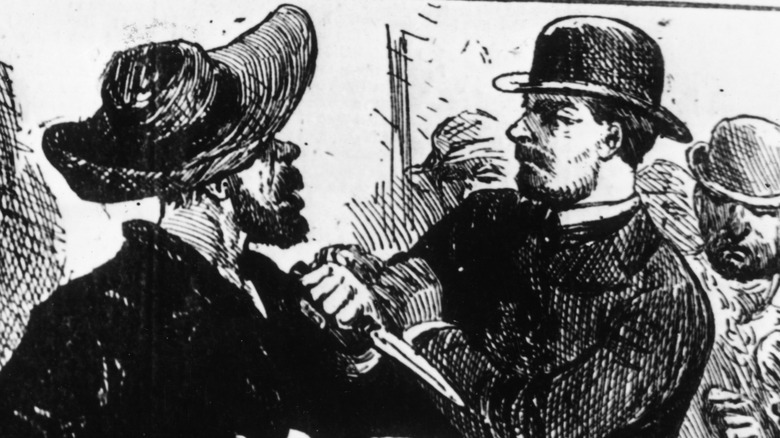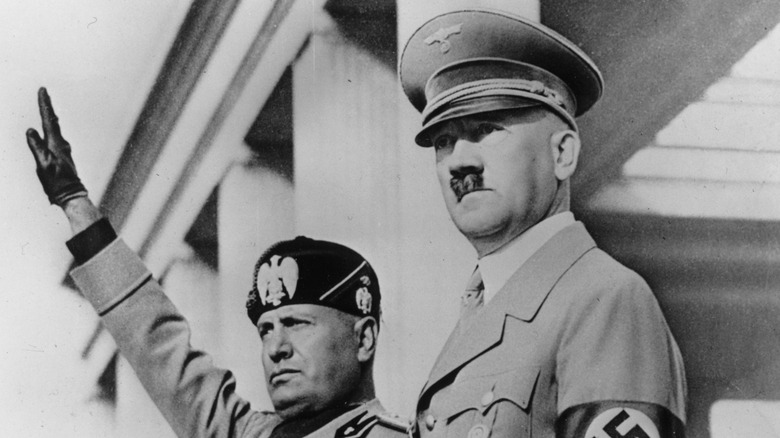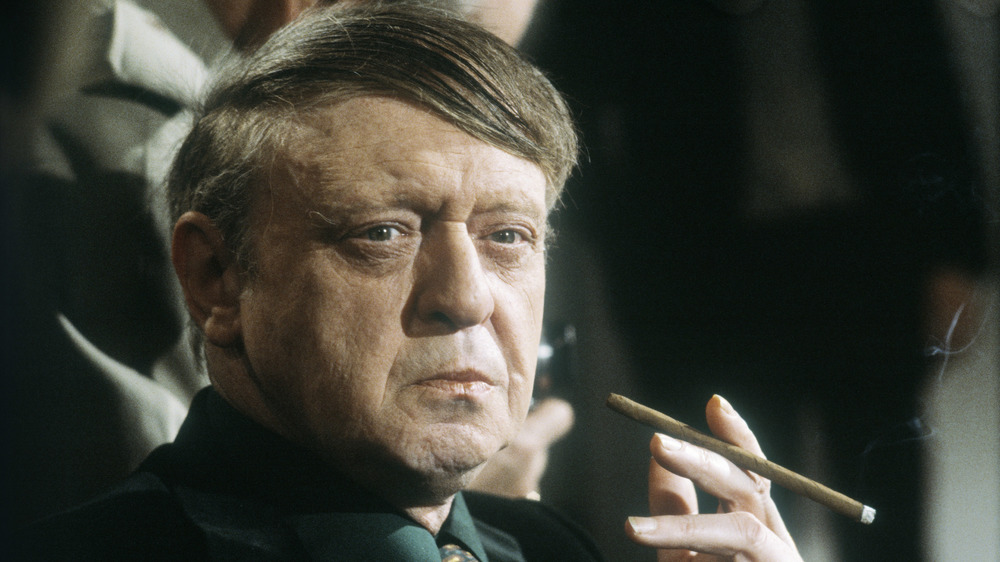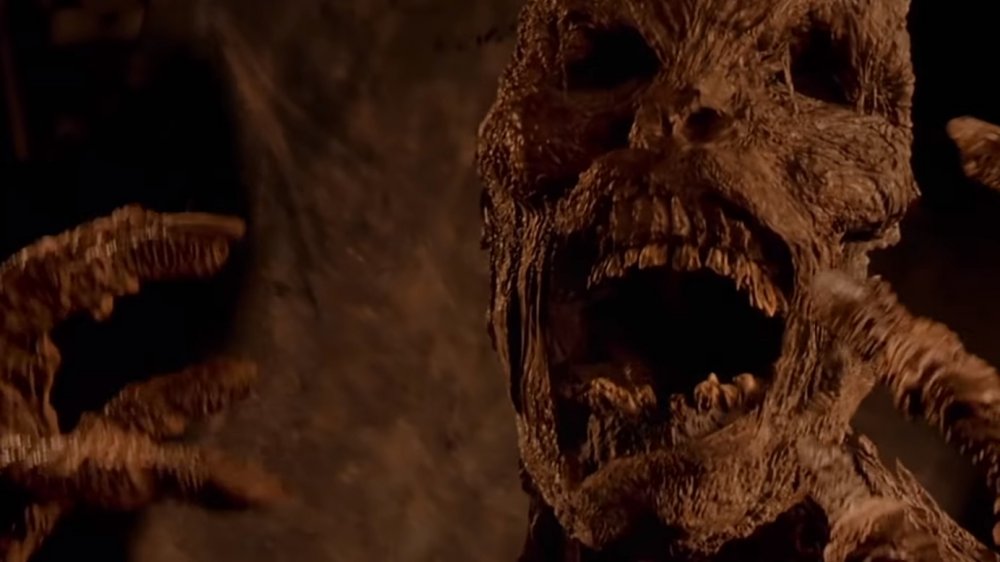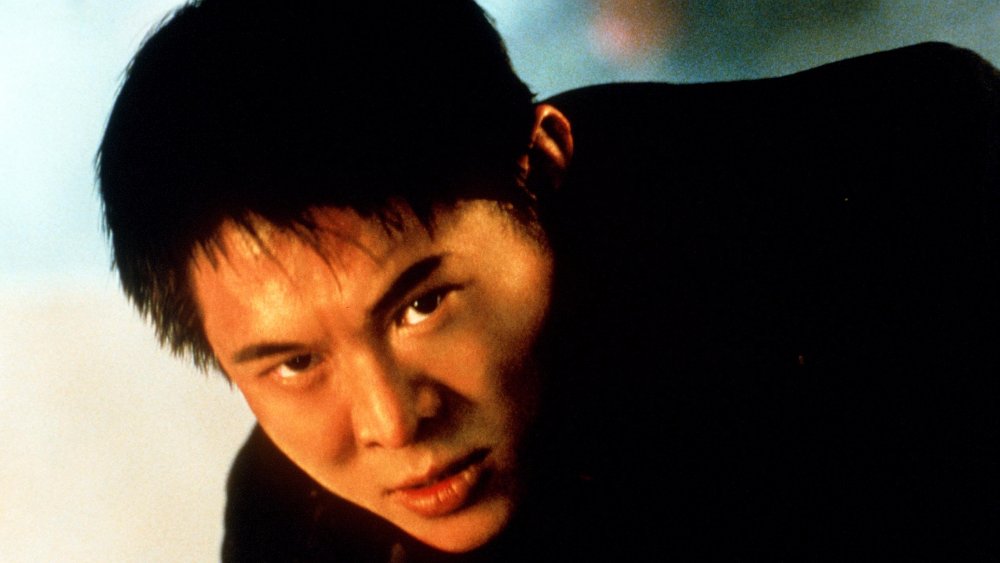
The Untold Truth Of Hans Zimmer
You don’t have to be a music aficionado or even a cinephile to know who Hans Zimmer is. The prolific composer has worked on over 200 movies, has won an Academy Award, and is probably the mastermind behind your favorite sci-fi and action movie scores of the past few decades. From “The Lion King” to “Inception” and even “Dunkirk,” Zimmer is everywhere.
Born in Frankfurt, Germany, in 1957, he moved to London as a teenager and showed a knack for music even in these early years (via AllMusic). He started his professional music career by writing jingles for ads, and the future composing legend was then in a few new wave and punk bands before transitioning into scoring films. According to the Atlantic, his big break came in 1988, when he scored the drama “Rain Man.” After that, Zimmer would put out a whopping five to six scores a year, effortlessly transitioning from dramas to cartoons to big-budget epics.
“The art of being a film composer hasn’t changed,” the music whiz told MusicTech. “The basic idea remains the same and that is to ask a question: ‘Why are we having music here?'” You might know many of the movies that Hans Zimmer has scored, but that’s not all this composing legend has done. This is the untold truth of Hans Zimmer.
Hans Zimmer's passion for music came after the death of his father
Tragedy struck early in Hans Zimmer’s life, when his father died. “I don’t care what any psychologist tells you,” Zimmer told GQ in 2018, “There’s no way a six-year-old can deal with it.” As a way to cope, he turned to music — something Zimmer called his “refuge” in an interview with CNN. “It was my way of calming the demons in me or at the same time sometimes letting them roar,” the “Interstellar” composer revealed.
His inspiration to pick up an instrument truly came full circle in the early ’90s, when he was asked to score the now-iconic Disney classic “The Lion King.” Explaining to GQ that the score ended up being a way for him to confront and deal with his childhood, Zimmer took on the heavy task of writing the music for when Simba’s father, Mufasa, dies in the flick. “… for an animated movie, it’s a fairly unusual piece of music,” he shared. “It’s completely and utterly personal.”
Zimmer won his only Oscar to date for his work on “The Lion King” but would only become even more respected and sought-after in the years to come.
Hans Zimmer is entirely self-taught
Given that he has composed over 200 movies since the early 1980s, you’d think Hans Zimmer would be a classically trained powerhouse. Well, that’s not exactly the case. As the “True Romance” composer told CNN, he’s entirely self-taught and never went to music school. Elaborating to No Film School, Zimmer explained, “I have no technique and I have no formal education, so the only thing I know how to write about is something that’s inside of me.”
With only two weeks of piano lessons as a child under his belt, the composer has mastered the art of explaining what he wants using human emotions as a guideline. As he told CNN, in the early days of his career, not being able to use professional Italian terms while speaking to musicians taught him how to be creative. “I always talked to them about the story or the emotional sense I was trying to achieve and, you know, sometimes faster, slower, louder, quieter works just as well as, you know, largo (ph), adagio, you know, pianissimo.”
While he may not have had much formal training when he started his career, Zimmer has relied on his understanding of something else through the years: computers. He joked to Collider in 2010, “… if you ask me to play a piano, I don’t play it very well. But I can play a computer really well.”
Hans Zimmer killed the radio star
1981 was a groundbreaking year for MTV. On August 1, the channel broadcast its very first segment, announcing “Ladies and gentlemen, rock ‘n’ roll.” After a brief introduction, the channel aired its first-ever music video: the Buggles’ “Video Killed The Radio Star.” As the keyboard intro started, the viewer got a glimpse of hands on keys. These hands belong to none other than Hans Zimmer. Decked out in a shiny leather jacket, the young composer drops some seriously synthy sounds — a far cry from the epic scores he’d work on later in his career.
During a chat with Hollywood Reporter in 2014, Zimmer revealed that he was “terrible at school” and ultimately dropped out to join a band. Hinting at his future in film, he added that he found the whole band experience “a bit tedious” but said that being a part of such an iconic moment on MTV must’ve led him in the right direction. “For me it was really the impetus to go, ‘Hey I like this idea of combining visuals and music,'” he told CBS, adding, “This is really — this is really where I want to go.”
According to Hollywood Reporter, after being a part of some bands, Zimmer turned his sights onto commercials, where he met movie composer Stanley Myers. Meeting Myers led to a mentorship, and the rest, as they say, is history.
Film music excites Hans Zimmer even more than rock 'n' roll
Clearly, being a part of a rock band was never the end goal for Hans Zimmer. “It’s a strange thing,” he told the Guardian, “When I started in film music, I very consciously left rock ‘n’ roll, and the music business behind.” He says that while he was very much interested in film music, at the time there weren’t as many passionate people about it as there are nowadays. Speaking about his perceived demise of the music industry, the “12 Years a Slave” composer says that with nowhere to turn to, some of his industry peers had to look at “the last living form” of income: film and television scoring.
But Zimmer also says that people discover more than a steady income when they switch from traditional record producing to movie scoring. “It gives you an incredible amount of freedom,” he explains, adding that for regular, full-length albums, the repetitive structure is “verse / chorus / bridge,” which he describes as “pretty limited.”
While there’s no doubt that Zimmer is passionate about his job, it doesn’t mean he’s completely turned his nose up at rock music. “I am a rock ‘n roller, and I’ll always be a rock ‘n roller,” he proudly declared to IndieWire. He says that, above all, he loves “the sound of anarchy.”
A rough start for Hans Zimmer
While it’s hard to imagine a time when Hans Zimmer wasn’t the “most in-demand composer” in Hollywood, things certainly weren’t easy when he was carving out his career path. During an interview with his daughter, Zoe Zimmer, for Citizen of Humanity’s Humanity magazine, the “Interstellar” composer revealed that once upon a time, their electricity would get turned off because he couldn’t pay the bills. “It’s really hard to be an electronic musician with no electricity!” he quipped.
Through the years, Zimmer had to take on some projects that perhaps he wasn’t as passionate about as, say, his now-iconic, brass-sounding “braaam” from “Inception” (via Longreads). One example? The quintessentially ’80s theme song for “Going for Gold,” a British game show. “I’m not ashamed of it!” the musician told the Guardian of the track. “It paid the rent and opened up all sorts of doors. I will admit to it: we all have to have our guilty little somethings!”
Nowadays, it’s evident that Zimmer can be a bit more selective with the jobs he takes on. With a net worth of a whopping $200 million (via Celebrity Net Worth), it’s safe to say he’s come a long way from gameshow jingles.
It seems like Hans Zimmer never stops working
During Hans Zimmer’s interview with his daughter, Zoe Zimmer, for Citizen of Humanity’s Humanity magazine, she proudly declared her father the “hardest working man in show business.” She notes that the composer has scored “close to 200 movies since the mid ’80s” — no small feat for anyone.
Michael A. Levin, who worked with Hans Zimmer “for about 8 years,” echoed a similar sentiment to Behind the Audio, saying, “When working on a project — which is most of the time — Hans usually arrives at the studio at 11 am and then works until 3 or 4 in the morning. 7 days a week. For months.” Hilariously, he also reveals that one can gauge how deep into a project the composer is by the length of his beard.
Hans Zimmer himself is the first to admit he has a pretty intense work schedule. Using his score for the chaotic war drama “Dunkirk” as an example, Hans told GQ that for seven months, his life consisted of “working ridiculous hours” before heading back home only to dream about the music “all night long.” As he puts it, “it never left me alone.”
He uses a specific technique in his scores that works time and time again
There’s a reason why Hans Zimmer is as successful as he is: the composer is truly phenomenal at capturing whatever mood he’s going for in any given scene in a movie. And while he’s scored a variety of different genres of flicks, he’s also been known to incorporate a now-signature sound.
Zimmer uses something called the Shepard tone in his scores, according to the Guardian. Essentially an auditory illusion, the Shepard tone tricks the listener into believing the melody is rising in pitch due to several tones in different octaves simply layered one over the other. Vox explains that this trick fills the audience with a sense of unease, thinking that the tones are actually rising, when in reality, they never do.
Zimmer has incorporated the Shepard tone in a number of his movies, and his frequent collaborator, director Christopher Nolan, is a huge fan of it too. According to Vox, the pair used this effect in “The Dark Knight,” “Interstellar,” and, of course, “Dunkirk,” which was an auditory spectacle in itself, winning Academy Awards for both sound editing and sound mixing.
Did Hans Zimmer become too successful for his own good?
While there’s no denying Hans Zimmer is an incredibly talented composer, and many perk up when they see his name connected to a film, others feel like he’s completely taken over Hollywood. As the Guardian notes, when the announcement that the composer had signed on to 2017’s “Blade Runner” sequel, “Blade Runner 2049,” the #stopHansZimmer hashtag was created. According to Icelandic Review, Jóhann Jóhannsson was originally at the helm of the highly anticipated follow-up and was later scrapped in favor of Hans Zimmer and composer Benjamin Wallfisch.
So, why all the hate? Well, along with the general consensus that he’s too dominant in Tinseltown, many moviegoers also believe all his music sounds the same. Hans Zimmer is fully aware of the negative feedback. During his chat with daughter Zoe Zimmer for Humanity magazine, the composer dished, “I get knocked for ‘sounding the same,’ which of course doesn’t actually make any sense.” Using his Ridley Scott collaborations as an example, Hans explains, “‘Thelma & Louise’ doesn’t sound anything like ‘Gladiator,’ which doesn’t sound anything like ‘Black Hawk Down,’ which doesn’t sound anything like ‘Hannibal’ …” To be fair, he has a point.
At the end of the day, Hans Zimmer truly believes he brings something different to the table with each of his flicks. As he tells Zoe, “Whether it’s ‘Spider-Man’ or ‘Superman’ or whatever, I strive to do something different every time.”
Hans Zimmer's biggest inspiration comes from this industry great
Of course, even the most legendary artists of our time find inspiration elsewhere, and Hans Zimmer is no exception. Since his rise to the top of the film industry, many have tried to copy the German composer’s signature action-packed scores (via the Atlantic), yet Zimmer himself looks toward another industry icon: the late Ennio Morricone.
Penning an essay about his icon for Gramophone in 2011, while the Italian composer was still alive, Zimmer wrote that he grew up without television and never watched any movies. When he was “about 12,” however, the future Oscar-winning composer went behind his parents’ backs to watch the Morricone-scored “Once Upon a Time in the West.” As Zimmer explains, “Not only was the film an overwhelming experience but the music completely got me and set me on my path and I knew what I wanted to do.”
From there, Zimmer watched more flicks scored by Morricone, and noticed that his idol was influenced by Johann Sebastian Bach and Wolfgang Amadeus Mozart. Later on in his career, Zimmer had an opportunity to meet Morricone. He described the “defining moment” in his life: “being at the Beethoven house, having Ennio Morricone explain the scores to me. That was a pretty great day.”
He takes on offensive projects to challenge himself
In the early days of Hans Zimmer’s composing career, he scored art films throughout Europe. As he moved on to Hollywood, however, he quickly pivoted towards more action-packed movies. Then he was asked to score the 1994 Disney animated feature “The Lion King” and won an Oscar.
“‘Lion King’ also made me reassess my situation in this town,” the composer recalled to Chicago Tribune in 1998. “You can go two ways. I admit that standing on the stage getting an Oscar is the most seductive moment in one’s life. It is truly overwhelming,” he remembered, explaining that his Academy Award win made him pivot yet again towards scoring “truly offensive projects.” Simply put, it’s because of his fear of stagnation that Zimmer decided he wanted to forget what it felt like to win an Oscar.
And so, Zimmer migrated towards less melodic projects. According to the Independent, he mangled Edith Piaf’s “Non, Je Ne Regrette Rien” as a recurring tune in “Inception,” while for “Sherlock,” his team took a broken piano and did “hideous things” as a way to convey the drunken protagonist’s movements.
Hans Zimmer has stage fright
One doesn’t necessarily expect a big-name movie composer to tour, and Hans Zimmer’s fans probably didn’t expect the composer to be a part of one of the world’s most famous music festivals. Yet, that’s precisely what Zimmer did in 2017 when he performed at Coachella. That year, the festival held a whopping 125,000 people (via Los Angeles Daily News).
“It was hovering at the edge of complete disaster,” Zimmer told Esquire a month after his Coachella appearance, admitting that he didn’t think he could pull off his set and keep the crowd engaged. “[It] was the big experiment for me. Can the music stand on its own two feet, or is it really just in the old fashioned way that film music used to be called background music. I just needed to find that out for myself.”
Although the legendary composer admits to suffering from anxiety attacks whenever he has to perform live, Zimmer miraculously pulled off his Coachella set to a pleased and packed crowd. One Twitter user shared a clip of fans attempting to dance to his set, and another bewildered festival-goer wrote, “So I guess the big Coachella discovery this year was … umm … Hans Zimmer.” Hey, maybe grooving to this escalating panic attack just works for some people.
The watch he wears is a meaningful gift from Christopher Nolan
Out of all of Hans Zimmer’s scores, he’s perhaps most well-known for his frequent collaborations with the cerebral action movie powerhouse, Christopher Nolan. The two have spent well over a decade working together on projects including “The Dark Knight” trilogy, “Interstellar,” “Dunkirk,” and “Inception” (via One Room With a View).
As Zimmer explained to IndieWire, what he believes that what sets him and Nolan apart from other director-composer duos is that they treat each other as a band, meaning both are equal contributors to the score. “The process was conversation. The process was experimentation,” he says. Throughout their work and conversations together, the A-list pair realized they kept “coming back to the subject of time in one way or another.” One example is the “Batman” trilogy, which took a shocking nine years to complete.
“Nine years is a serious chunk of life that has gone by,” Zimmer mused to IndieWire, revealing that as a token of their friendship and work together, Nolan gave the composer an inscribed watch. “On the back, it’s our motto. It’s a line from the movie [“Interstellar“] but it’s absolutely our motto of how we work: ‘This is no time for caution.'”
Billie Eilish has Hans Zimmer to thank for her James Bond contribution
In 2020, Billie Eilish made history as the youngest musician to sing and write the title track for a James Bond flick in the franchise’s 50-year history (via Forbes). While there’s no denying the talent behind Eilish’s frequent record-breaking success, she has Hans Zimmer to thank for becoming a piece of 007 history.
As Zimmer explained during a chat with GQ, Barbara Broccoli, the long-time producer behind Bond, asked the composer to sift through “a box full of songs lying around” as a way to select the upcoming flick’s theme. When he heard Eilish’s “No Time to Die,” he knew that was what he wanted. “I just loved it from the moment I heard it,” he dished to ABC News, adding, “it just got under my skin and stayed there.”
As GQ writes, Zimmer was the “guiding hand” for the young pop star and her brother, producer Finneas, with Zimmer and Eilish even practicing playing the piano together. “A Bond song is an important thing,” Zimmer explained to Variety. “It carries a lot of weight with it.” As for Eilish, she only has positive things to say about the composing legend. “It was crazy. … He’s a doll,” she gushed on the Tonight Show Starring Jimmy Fallon. “He’s such a joy.”
Hans Zimmer won't be retiring anytime soon
Hans Zimmer’s first major composing success in Hollywood came in 1988 with “Rain Man,” and he hasn’t stopped filling our ears with cinematic goodness since then. But after decades of scoring hit movies, is he ever going to retire?
Not quite yet. In fact, during his interview for Citizen of Humanity’s Humanity magazine, the prolific composer gave the following glimpse into his mind: “I sometimes wish I could just watch an awful lot of television in bed and not engage in the next battle, y’know?” Adding that he simply can’t call it quits, the “Gladiator” composer went on, “I think part of what happens is — I don’t think there’s any middle ground. I think you’re either very successful or you’re not successful at all.”
It’s not just that Hans Zimmer “can’t” stop working, he simply doesn’t want to. Telling CNN that it would “kill” him to retire, the film fanatic passionately explained, “it’s not just a job, it’s not just a hobby, it’s why I get up in the morning.” And there’s no doubt Zimmer loves going to work. Posting a photo of his studio in a Reddit “Ask Me Anything” thread, the musician wrote, “If you have to spend 98% of your life in a room without windows, you might as well have some fun with [the] decor.”

This Was Charlie Watts' Profession Prior To Joining The Rolling Stones
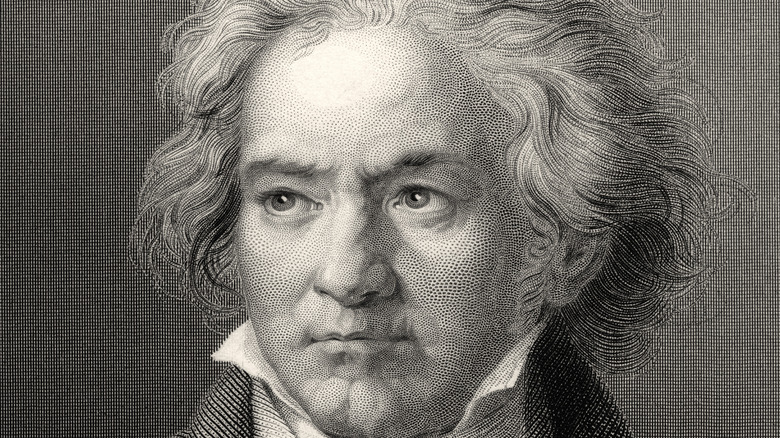
The Truth About Beethoven's Father
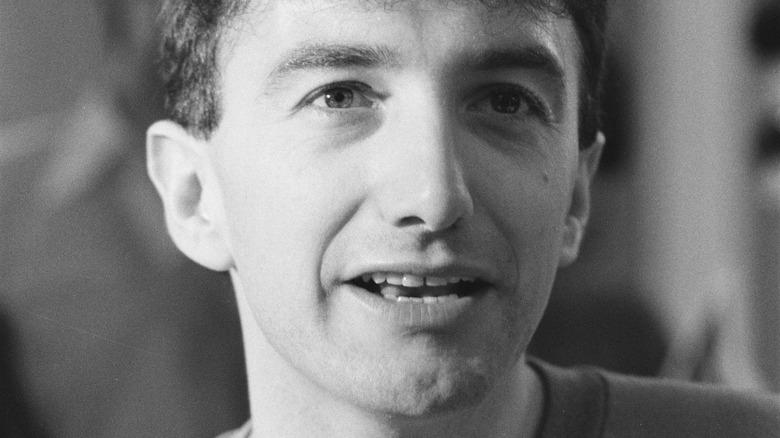
How Much John Deacon Is Actually Worth
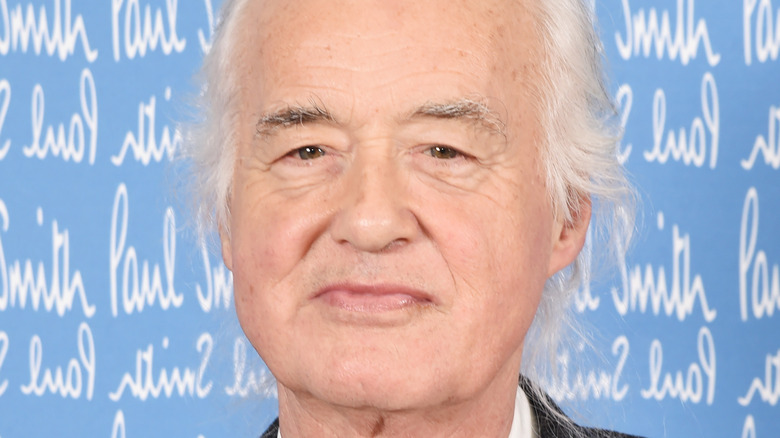
This Is How Much Jimmy Page Is Actually Worth

Most Viewers Missed This Small Detail In The Office's Timeline
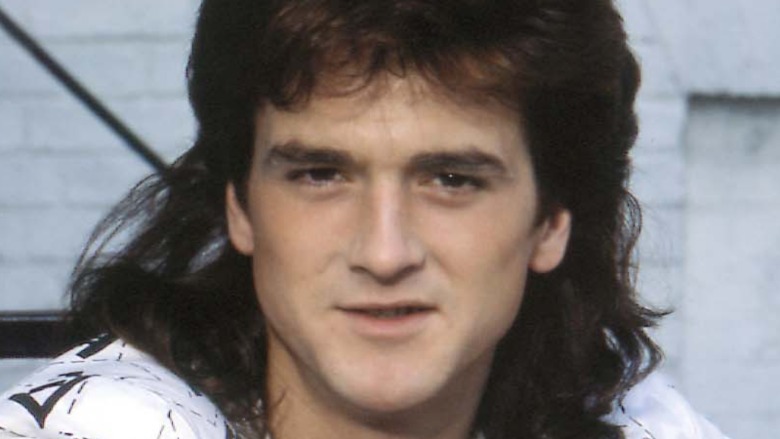
What Was Les McKeown's Net Worth When He Died?

The Messed Up Truth About The 1950s Music Industry
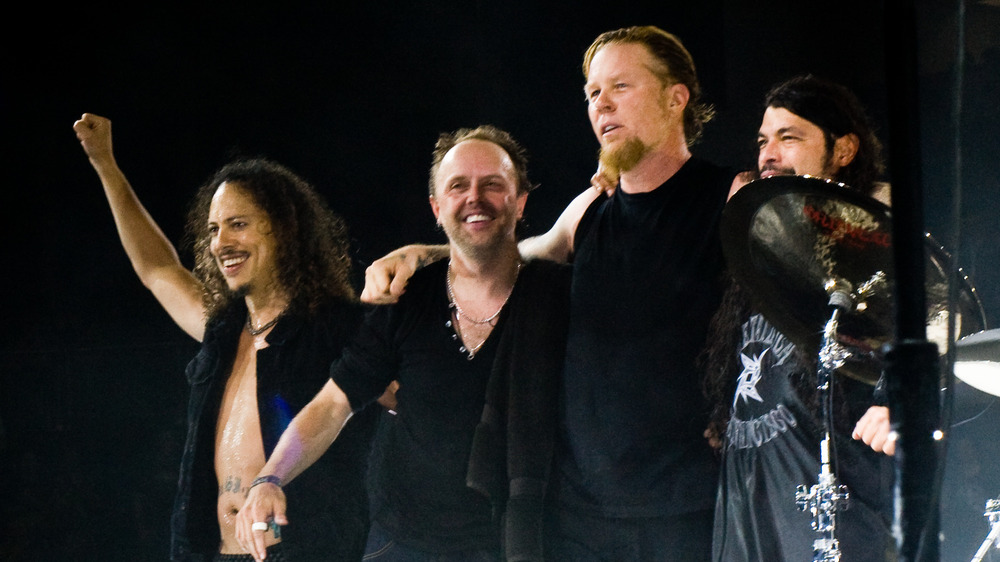
The Most Underrated Metallica Song On Every Album
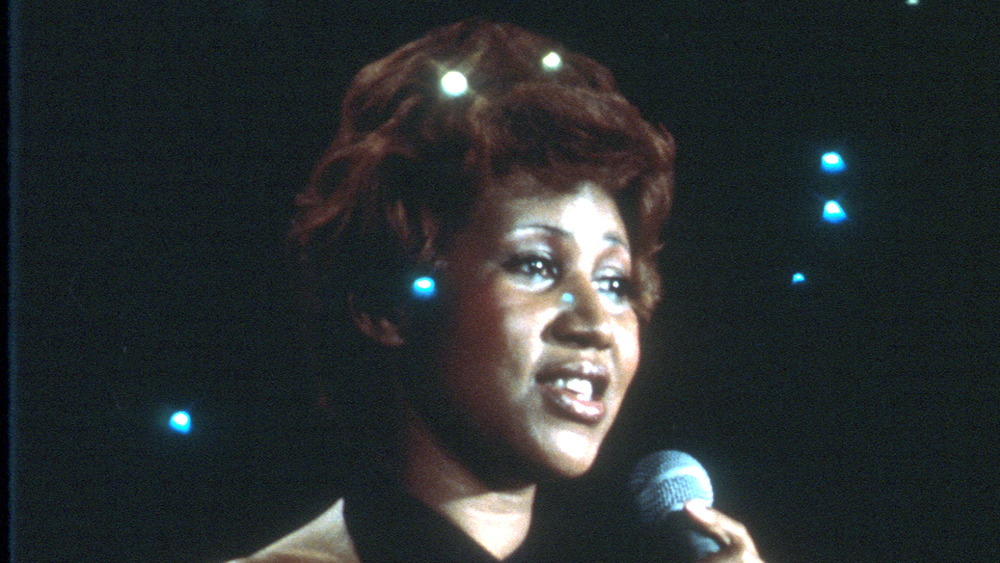
The Heartbreaking True Story About Aretha Franklin
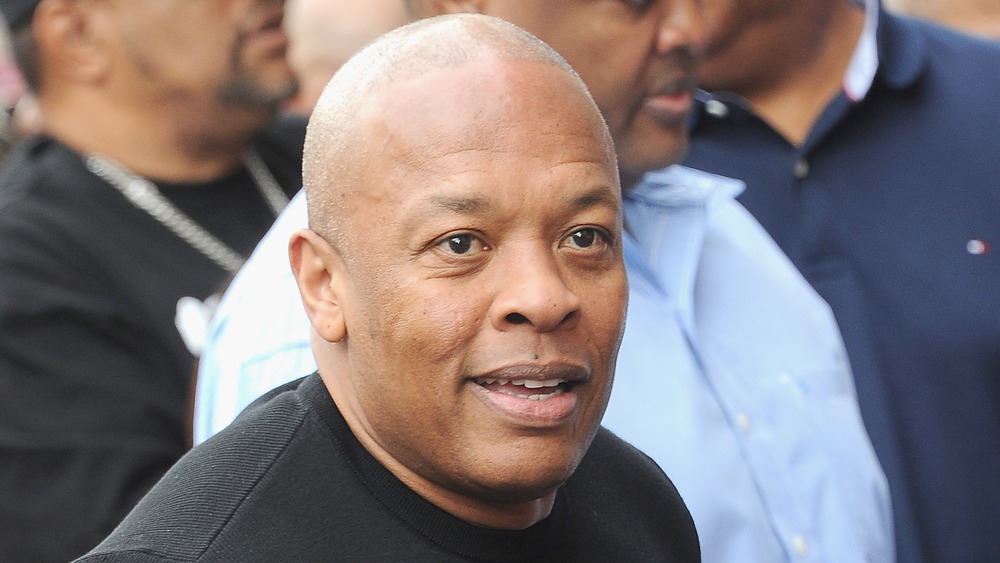
Details You Never Knew About Dr. Dre's Legal Issues
